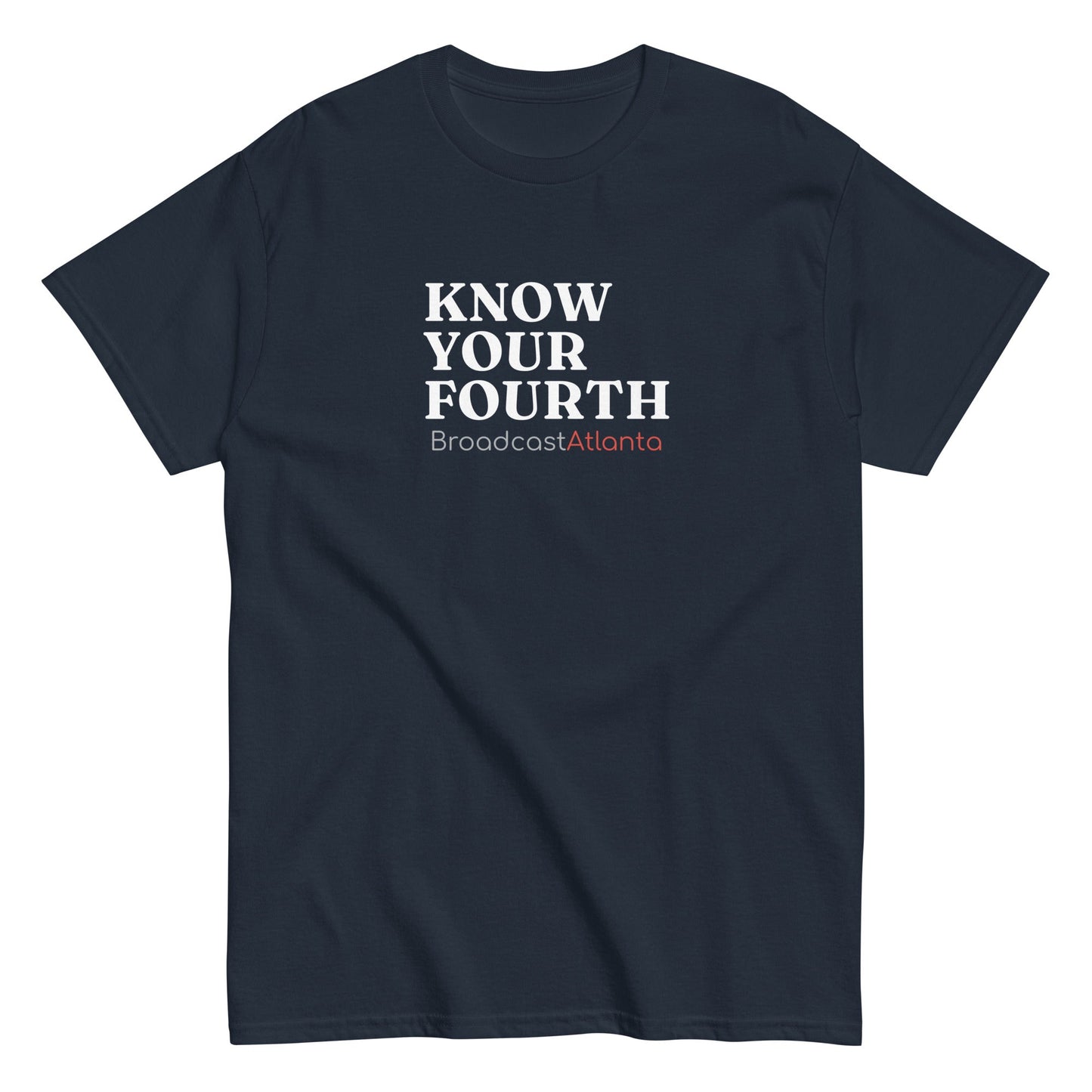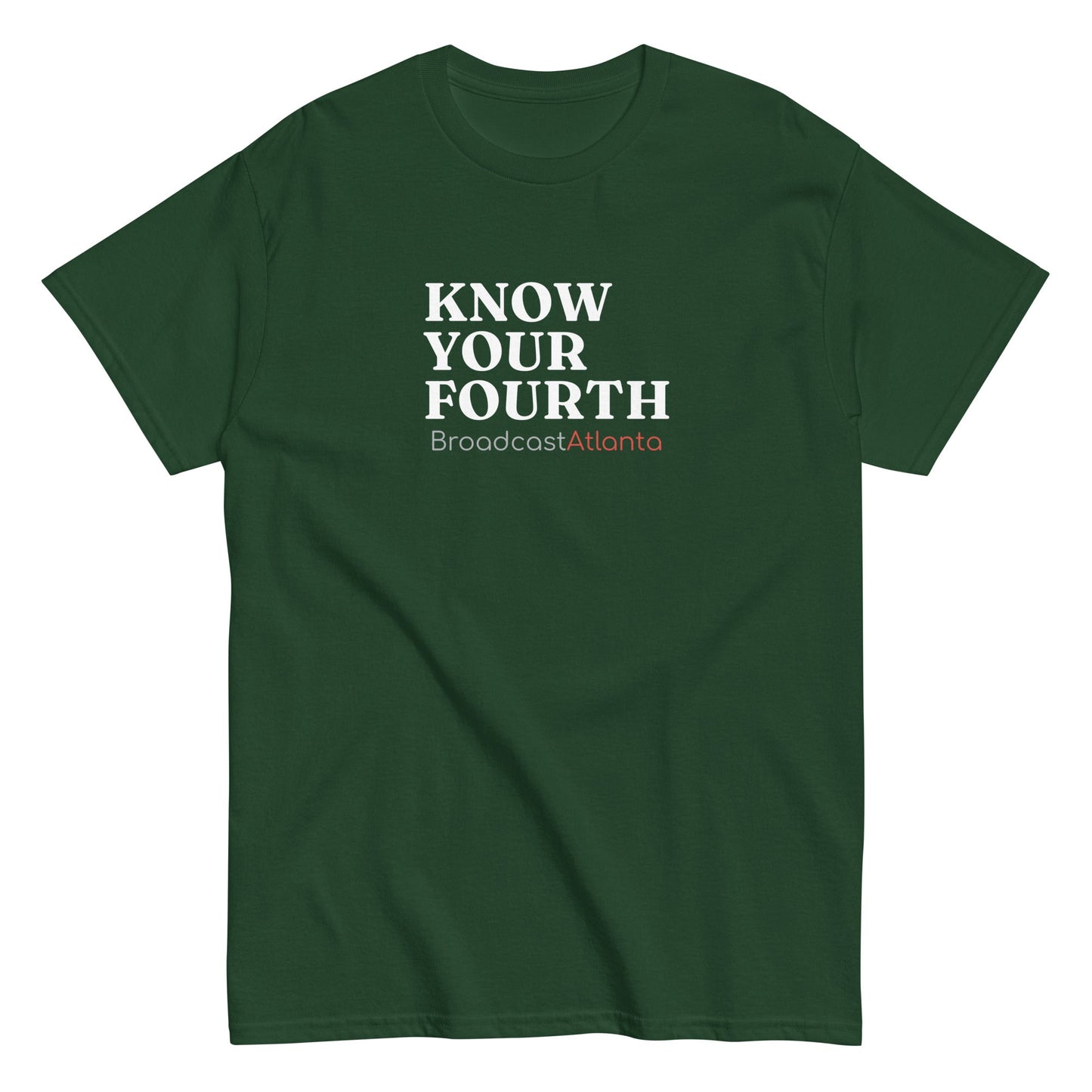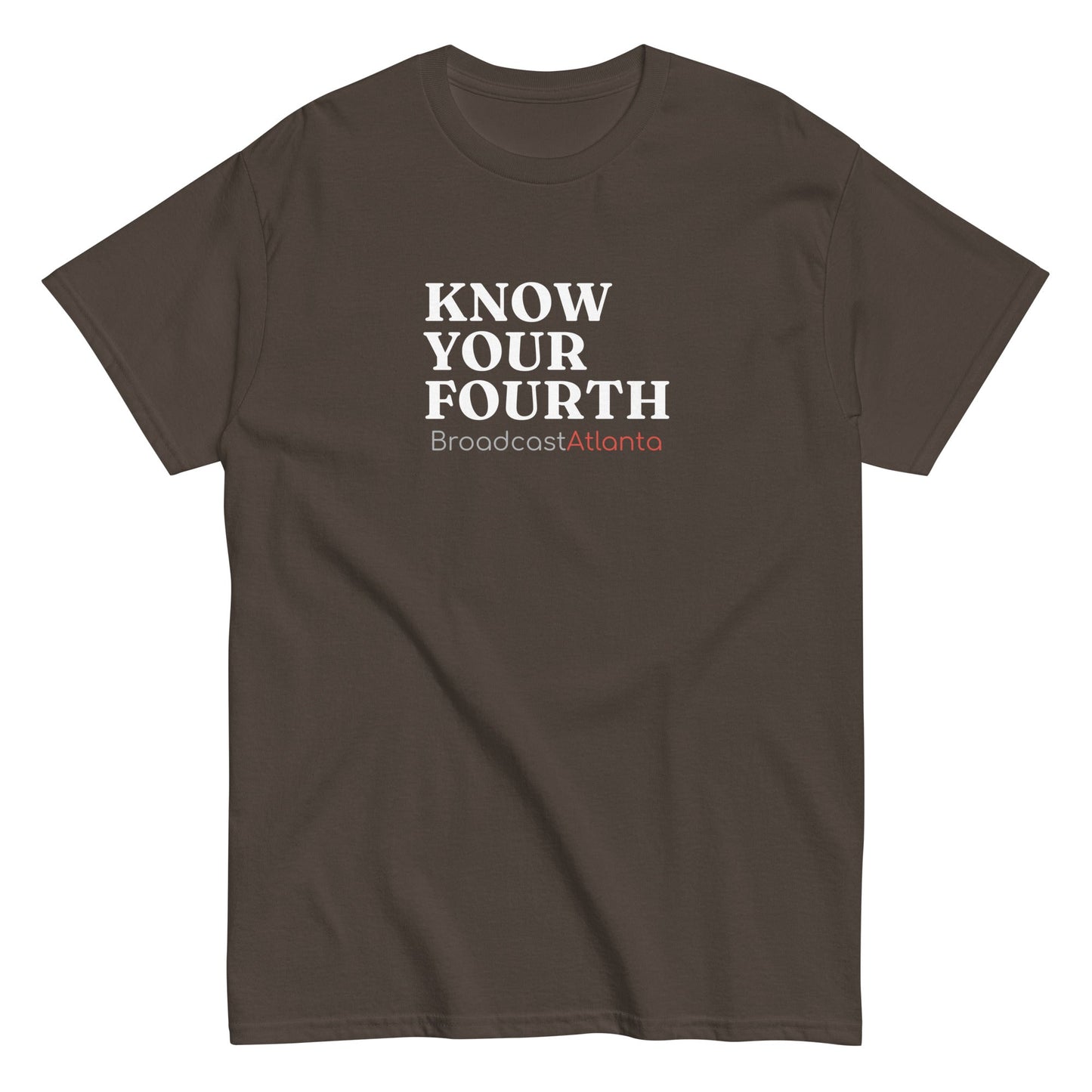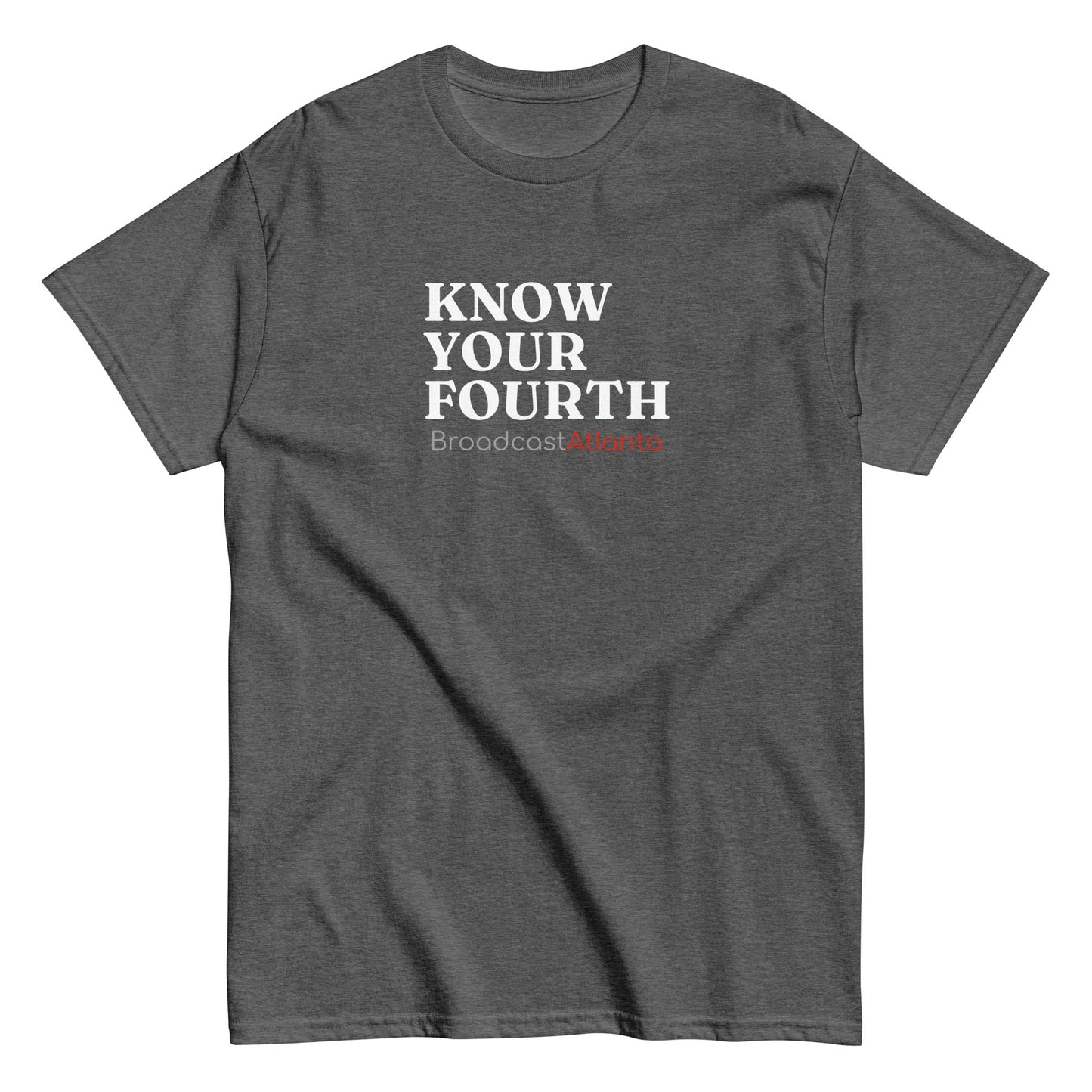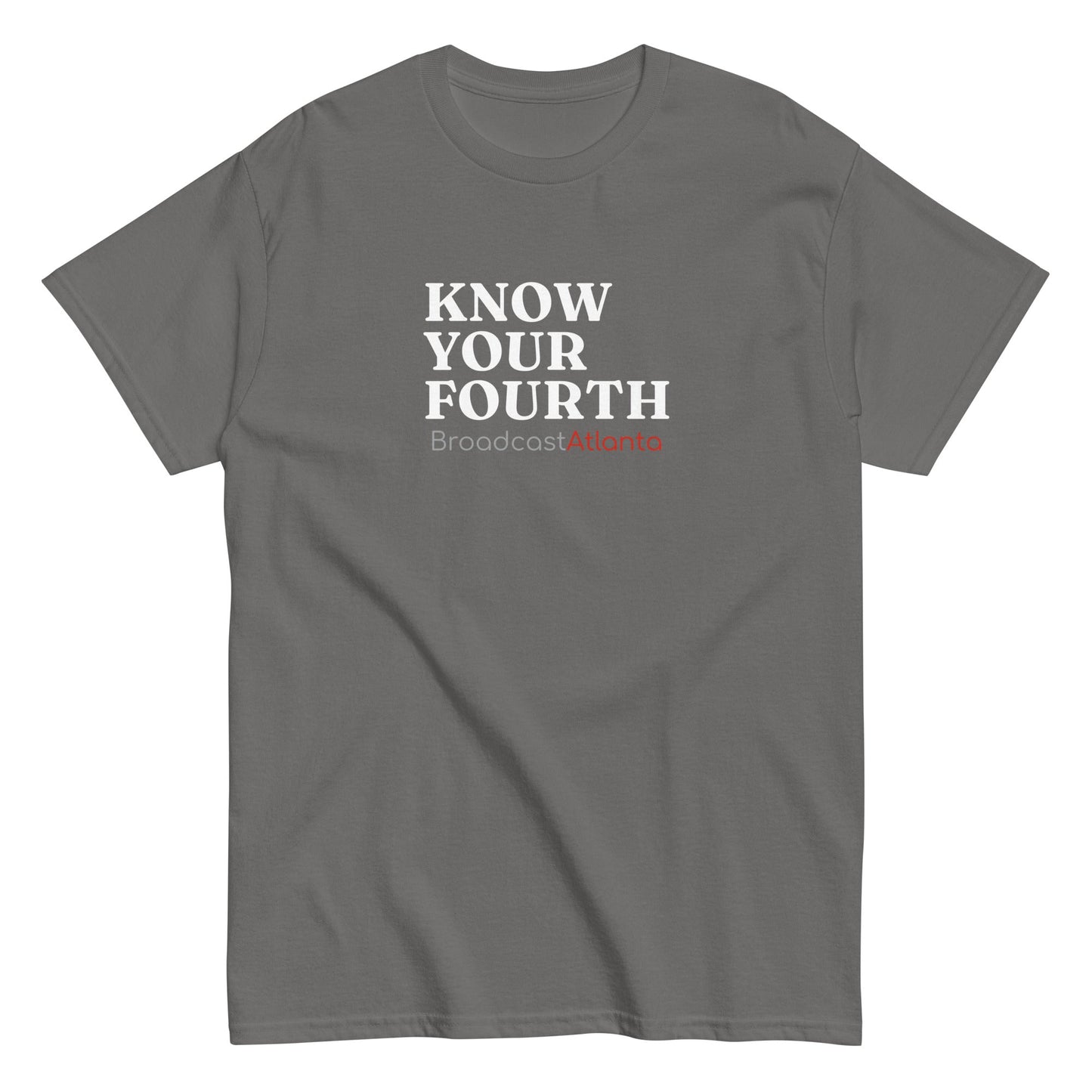The "Know Your Fourth" is a public awareness campaign of Broadcast Atlanta.
This article will delve into the Fourth Amendment's protections, explore its relevance in modern life, and provide practical guidance on how you can assert your rights effectively and responsibly.
The Fourth Amendment to the United States Constitution is a cornerstone of American civil liberties. Enshrined within the Bill of Rights, it protects citizens from unreasonable searches and seizures by the government. Yet, understanding these rights and knowing how to exercise them in everyday situations can be challenging for the average American.
What Does the Fourth Amendment Say?
The text of the Fourth Amendment reads:
“The right of the people to be secure in their persons, houses, papers, and effects, against unreasonable searches and seizures, shall not be violated, and no Warrants shall issue, but upon probable cause, supported by Oath or affirmation, and particularly describing the place to be searched, and the persons or things to be seized.”
In simpler terms, this means:
- You are protected from arbitrary invasions of privacy by government authorities.
- Law enforcement generally needs a warrant supported by probable cause to search you, your property, or your belongings.
- Searches or seizures conducted without proper justification can be challenged in court and deemed unconstitutional.
Key Concepts of the Fourth Amendment
1. Search and Seizure
- A "search" occurs when the government examines a person, place, or thing in a way that invades their reasonable expectation of privacy.
- A "seizure" involves taking control of a person or property.
2. Probable Cause
Law enforcement must have a reasonable basis to believe that a crime has been committed or that evidence of a crime will be found before conducting a search or seizure.
3. Warrants
Search warrants must be issued by a judge, based on probable cause, and describe in detail the specific place to be searched and the items or individuals to be seized.
4. Exceptions to the Warrant Requirement
There are certain situations where authorities can act without a warrant:
- Consent: If you give permission, officers can conduct a search.
- Plain View Doctrine: Items in plain sight can be seized without a warrant if the officer is lawfully present.
- Search Incident to Arrest: When someone is lawfully arrested, officers can search their person and immediate surroundings.
- Exigent Circumstances: If there is an emergency or imminent threat (e.g., destruction of evidence), a warrant may not be required.
Exercising Your Fourth Amendment Rights in Everyday Situations
To make the Fourth Amendment protections practical, it’s essential to understand how to assert your rights during interactions with law enforcement. Below are common scenarios and tips for exercising your rights effectively.
1. During a Traffic Stop
Traffic stops are among the most common interactions between citizens and law enforcement. Here’s how to handle them:
- Remain Calm and Polite: Stay respectful and comply with basic requests like providing your driver’s license, registration, and proof of insurance.
- Limit Your Communication: You are not required to answer questions unrelated to your identity or the purpose of the stop (e.g., “Where are you going?”). Politely say, “I prefer not to answer that question.”
- Refuse Consent to Search: If an officer asks to search your vehicle, you have the right to say no. Clearly state, “I do not consent to a search.” However, if they have probable cause or observe something in plain view, they may still proceed without your consent.
- Document the Interaction: If you feel your rights are being violated, you can record the interaction. Ensure it does not interfere with the officer’s duties.
2. When Police Knock on Your Door
If law enforcement comes to your home, you are entitled to a heightened level of privacy under the Fourth Amendment.
- Ask for Identification: Always verify the officer’s identity and purpose for being there.
- Do Not Open the Door Immediately: You are not obligated to let officers inside unless they have a valid warrant or exigent circumstances.
- Request a Warrant: If they claim to have a warrant, ask to see it through the window or request that they slide it under the door.
- Exercise Your Right to Silence: If you choose to speak, limit your comments and avoid volunteering unnecessary information.
3. In Public Spaces
While you have fewer privacy rights in public, you are still protected under the Fourth Amendment in certain situations:
- Stop and Frisk: If stopped and frisked, know that police must have "reasonable suspicion" of criminal activity. Politely ask, “Am I free to go?” If they say yes, walk away calmly. If not, you can remain silent until legal counsel is present.
- Bag and Personal Belongings: Authorities cannot search your bags without probable cause, consent, or a warrant. If they request to do so, clearly state, “I do not consent to this search.”
- Photography and Filming: In most public places, you have the right to film law enforcement, provided it does not interfere with their duties.
4. Digital Privacy and Technology
The digital age has introduced new challenges to Fourth Amendment protections, especially regarding personal devices and online activity.
- Cell Phones: Law enforcement generally cannot search your phone without a warrant, even during an arrest, due to the Supreme Court’s decision in Riley v. California (2014). Politely decline if asked for access.
- Emails and Social Media: While there are privacy laws governing electronic communications, it’s wise to avoid sharing sensitive information online or storing it in unsecured locations.
- Encryption and Passwords: Protect your devices with strong passwords and encryption. You are not legally required to provide passwords unless compelled by a court order.
Tips for Asserting Your Rights
- Be Respectful and Composed: Assert your rights calmly and without hostility. Confrontational behavior can escalate the situation unnecessarily.
- Know Key Phrases: Memorize simple, clear phrases like:
- “I do not consent to this search.”
- “Am I being detained or am I free to go?”
- “I would like to speak to an attorney.”
- Do Not Resist: Even if you believe your rights are being violated, do not physically resist a search or arrest. Instead, document the incident and seek legal redress later.
- Understand Your State’s Laws: While the Fourth Amendment applies nationally, some states have additional protections or variations in how rights are enforced.
What to Do If Your Rights Are Violated
If you believe your Fourth Amendment rights have been infringed, take the following steps:
- Document Everything: Record the time, location, names of officers, and details of the incident.
- Gather Evidence: If possible, collect witness statements or video recordings to support your account.
- Consult an Attorney: A qualified lawyer can help you determine if your rights were violated and guide you through the process of filing a complaint or lawsuit.
- File a Complaint: Report the incident to the relevant law enforcement agency or oversight body.
The Importance of Awareness and Advocacy
The Fourth Amendment is a powerful tool for protecting individual freedoms, but its effectiveness depends on public awareness and vigilance. By understanding your rights and exercising them responsibly, you contribute to a culture that values accountability and justice.
Moreover, advocating for reforms that balance law enforcement needs with civil liberties is essential in a rapidly changing world. Whether it’s addressing digital privacy concerns or strengthening protections against racial profiling, staying informed and engaged ensures that the Fourth Amendment remains a vital safeguard for all Americans.
The Fourth Amendment is not just a legal provision—it’s a reflection of the principles of freedom, privacy, and fairness that define the United States. By knowing and asserting your rights, you uphold these values and help preserve them for future generations.










